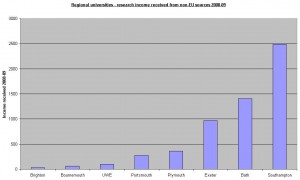
The British Society for Geomorphology has issued three calls in Geomorphological research.
The first is Innovative and Emerging Techniques in Geomorphology.
Up to £10,000 (ideally £5,000) is available to support the development of new technology and/or analytical techniques in geomorphology as stated in the BSG Mission, Sections 1.5 and 1.6. It is envisaged that the pump-priming of new techniques in geomorphology will support applications to the RCUK. Applications must have a geomorphological focus.
Deadline: 30 September 2012
The second is Early Career Researcher.
Up to £10,000 (ideally £5,000) is available to pump-prime geomorphological research undertaken by an Early-Career Researcher (ECR). We define an ECR as a member of staff who holds an employment contract of 0.2FTE or greater and who started their academic career within four years of the closing date of applications. Note that to be eligible for this scheme, the primary employment function of applicants must be in ‘research’ or ‘teaching and research’, within any HEI or other organisation, whether in the UK or overseas.
PLEASE NOTE: Applicants should state the start date of their career on the application form.
There is no restriction on the type of support eligible for funding (e.g. conference, workshop, field visit, data purchase, lab costs), although consistent with other BSG grant schemes, they will not support salaries. Applications will be evaluated both for the quality of the research, and for its potential to pump-prime subsequent work.
Applicants to the ECR scheme cannot be a Principal Investigator on any other grant bids to the BSG in the same funding round.
Deadline(s): 30 September and 1 February
The third is in Research Networks in SE Asia and China.
Up to £10,000 (ideally £5,000) is available to support development of research networks in SE Asia and China. The purpose of this grant is to bring together global partners with a research interest in the SE Asia or China region. It is envisaged the £10,000 may support one or more workshops or conferences hosted within the region by SE Asia or China colleagues. The region supported by these awards includes India but excludes Japan.
Deadline: 30 September 2012
All applications should be applied for Online through the BSG’s site.
The RKE Operations team can help you with your application.




 Following on from the recent AHRC/Radio 3 New Generation Thinkers pilot scheme and the over-subscribed AHRC Broadcast Media workshops , the
Following on from the recent AHRC/Radio 3 New Generation Thinkers pilot scheme and the over-subscribed AHRC Broadcast Media workshops , the 












 From Sustainable Research to Sustainable Research Lives: Reflections from the SPROUT Network Event
From Sustainable Research to Sustainable Research Lives: Reflections from the SPROUT Network Event REF Code of Practice consultation is open!
REF Code of Practice consultation is open! BU Leads AI-Driven Work Package in EU Horizon SUSHEAS Project
BU Leads AI-Driven Work Package in EU Horizon SUSHEAS Project Evidence Synthesis Centre open at Kathmandu University
Evidence Synthesis Centre open at Kathmandu University ECR Funding Open Call: Research Culture & Community Grant – Apply now
ECR Funding Open Call: Research Culture & Community Grant – Apply now ECR Funding Open Call: Research Culture & Community Grant – Application Deadline Friday 12 December
ECR Funding Open Call: Research Culture & Community Grant – Application Deadline Friday 12 December MSCA Postdoctoral Fellowships 2025 Call
MSCA Postdoctoral Fellowships 2025 Call ERC Advanced Grant 2025 Webinar
ERC Advanced Grant 2025 Webinar Update on UKRO services
Update on UKRO services European research project exploring use of ‘virtual twins’ to better manage metabolic associated fatty liver disease
European research project exploring use of ‘virtual twins’ to better manage metabolic associated fatty liver disease